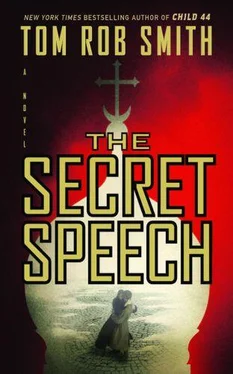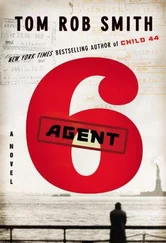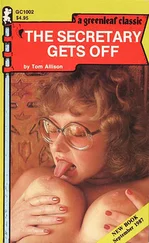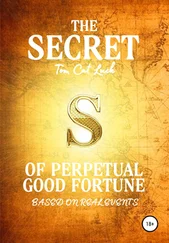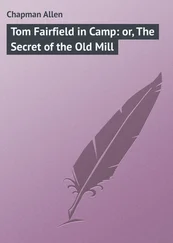Tom Smith - The Secret Speech
Здесь есть возможность читать онлайн «Tom Smith - The Secret Speech» весь текст электронной книги совершенно бесплатно (целиком полную версию без сокращений). В некоторых случаях можно слушать аудио, скачать через торрент в формате fb2 и присутствует краткое содержание. Жанр: Триллер, на английском языке. Описание произведения, (предисловие) а так же отзывы посетителей доступны на портале библиотеки ЛибКат.
- Название:The Secret Speech
- Автор:
- Жанр:
- Год:неизвестен
- ISBN:нет данных
- Рейтинг книги:5 / 5. Голосов: 1
-
Избранное:Добавить в избранное
- Отзывы:
-
Ваша оценка:
- 100
- 1
- 2
- 3
- 4
- 5
The Secret Speech: краткое содержание, описание и аннотация
Предлагаем к чтению аннотацию, описание, краткое содержание или предисловие (зависит от того, что написал сам автор книги «The Secret Speech»). Если вы не нашли необходимую информацию о книге — напишите в комментариях, мы постараемся отыскать её.
The Secret Speech — читать онлайн бесплатно полную книгу (весь текст) целиком
Ниже представлен текст книги, разбитый по страницам. Система сохранения места последней прочитанной страницы, позволяет с удобством читать онлайн бесплатно книгу «The Secret Speech», без необходимости каждый раз заново искать на чём Вы остановились. Поставьте закладку, и сможете в любой момент перейти на страницу, на которой закончили чтение.
Интервал:
Закладка:
THE COMMANDER WAS STILL TALKING, recounting bloody confession after bloody confession, seemingly oblivious to the gunfire. His mind had snapped: under Stalin his character had been pulled with such extreme force in one direction. Now he was being pulled in the exact opposite direction. He had no resistance, no idea who he really was, neither a good man nor a bad man but a weak one.
Allowing the commander to carry on, Leo opened the shutter, cautiously looking out. Rioting prisoners were running in every direction. There were bodies on the snow. Calculating the forces on both sides, Leo guessed a ratio of one guard for every forty inmates, a high ratio, in part explaining why the camps were so expensive to run — the forced labor failing to earn back the cost of keeping the convicts fed, housed, transported, and enslaved. A central expense was the guards, paid a premium for working in such remote conditions. This was the reason they were killing to cling on to authority. They had no lives to go back to, no families or neighborhoods that wanted them. No factory floor community would accept them. Their prosperity depended upon the prisoners. The fight would be equally desperate on both sides.
There was a flash of gunfire from the towers — the window shattered. Leo dropped, glass falling around him, bullets hitting the floor-boards. Safe behind the thick log walls, he slowly reached up, trying to close the shutters. The wood broke apart in a shower of splinters. The room was exposed. On the desk the PA equipment, kicked around by the bullets, was lifted up, spinning in the air before clattering to the floor. Sinyavksy fell back, curling into a ball. Over the noise Leo cried out:
— Do you have a gun?
Sinyavksy’s eyes flicked to the side. Leo followed them to a wood crate tucked in the corner, padlocked. He stood up, running toward it, only to find the commander running to block him, putting his hands up:
— No!
Leo knocked the commander aside, picking up the steel desk lamp and bringing the heavy base crashing down against the lock. With a second blow the lock smashed off and he pulled it free. The commander once again leapt forward, throwing himself over the crate:
— I beg you…
Leo pulled him off, opening the lid.
Inside there was nothing more than a collection of odds and ends. There were framed photos. They showed the commander standing proudly beside a canal: emaciated prisoners toiled in the background. Leo guessed they were the photos that had originally hung on the office wall. He tossed them aside, rooting through files, certificates, awards, and letters congratulating Sinyavksy on meeting a quota — the detritus of his great career. There was a hunting rifle at the bottom. On the handle were notches, twenty-three kills. Certain that these notches didn’t refer to wolves or bears, Leo loaded the rifle with the fat, finger-length bullets, moving back to the window.
The two primary towers, the vakhta , were strategically crucial, constructed on high wooden stilts. The guards had already pulled up the ladders, making it impossible to scale their positions. Protected behind thick log walls, the top of each tower housed podium-mounted machine guns capable of firing hundreds of rounds a minute, a collective firepower far greater than anything on the ground. Leo had to draw their fire away from the prisoners. He took aim at the guard tower directly ahead. There was little chance his shot would be accurate enough to penetrate the gap in the log walls. He fired twice, shuddering under the massive recoil of the rifle. They stopped firing at the prisoners, redirecting their volley of bullets at him.
Ducking down, crouched against the floor, Leo glanced at Sinyavksy. He was in the corner, reading the remaining pages of the Secret Speech, calmly, as if nothing were amiss while his office was torn apart by gunfire. He looked up at Leo, reading:
— Let my cry of horror reach your ears: do not remain deaf, take me under your protection; please, help remove the nightmare of interrogations and show that this is all a mistake!
Sinyavksy stood up:
— This is all a terrible mistake! This should never have happened!
Leo shouted at him:
— Get down!
A bullet hit the commander in the shoulder. Unable to watch him die, Leo jumped up, knocking him flat. Landing on his injured knees, Leo almost passed out with the pain. Sinyavksy whispered:
— That speech has saved my life.
Leo smelled smoke. He rolled onto his back, taking the pressure off his knees. He stood up awkwardly, moving to the window. There was no more heavy gunfire. Through the smashed window he cautiously surveyed the zona and saw the source of the smoke. Directly underneath the base of the cabin was a fire, flames climbing the structure. Barrels of fuel had been rolled underneath and set alight, the cabin roasting like a chunk of meat at the end of a skewer. For the men inside there was no escape. Unable to climb down the ladder, the guards tried to squeeze out through the gap in the log walls. The gap was too narrow: one man was stuck, wedged in, unable to go forward or back as the fire took hold. He began to scream.
The second tower was trying to protect itself from a similar fate: shooting at the prisoners carrying materials to build a fire. But there were too many convicts, coming from too many sides. Once they were underneath, there was nothing the guards in the tower could do except wait. A new fire was started. Both towers had been defeated. The balance of power had shifted. The prisoners now had control of the camp.
An axe cracked into the commander’s door, a second blow, a third, the steel end jutting through the timber. Before they had a chance to break through Leo put the rifle down and unlocked the door, stepping back, arms up, indicating surrender. A small force of prisoners stormed the room, brandishing knives and guns and steel bars. The man in charge regarded his captives:
— Bring them outside.
The prisoners grabbed Leo by his arms, hurrying him down the steps, herding him together with the guards that had been captured— their roles reversed. Battered and bloody, they sat on the snow watching the vakhta burn. Columns of smoke rose up, blocking out a wide streak of sky, announcing their revolution to the entire region.
SAME DAY
SCRUNCHING HIS FACE IN CONCENTRATION, Malysh studied the handwritten list. He’d been told it was composed of the names of the men and women Fraera planned to murder. Since he was unable to read, the list appeared to his eye as nothing more than a collection of unintelligible symbols. Up until recently it had never troubled him that he couldn’t read or write, able only to recognize the letters of his klikukha , making him little more literate than a dog recognizing the call of its name. For this reason, during his initiation he’d been savvy enough to insist that none of his tattoos contain words for fear that his fellow vory might exploit his ignorance and print something insulting. Though it was forbidden under penalty of death to create a false tattoo, an outright lie, that rule might not prevent them making a joke at his expense, calling him Little Prick, instead of Little One.
He was smart and he didn’t need a certificate or a diploma to prove it. He didn’t need to read or write. What good were those skills to him? He didn’t expect a teacher to pick a lock or throw a knife. Why should anyone expect a thief to read? While that reasoning still made sense to him, something had changed. Embarrassment was inside him and it had begun to grow since the moment Zoya had taken hold of his hand.
She couldn’t know that he was illiterate. Maybe she presumed the worst, seeing him as little more than a chiffir -addicted thug. He didn’t care. She should be more worried about whether he was going to slit her throat rather than pass judgment on him. He was winding himself up. Breathing deeply, he returned his attention to the names in front of him — the retired Chekists. He knew from listening to Fraera that the list contained names, addresses, and a description of each individual’s crimes — whether they were an investigator, an interrogator, or an informer. Running a dirty thumbnail over each line, he could identify which column contained their names: that was the column with the fewest words. The column with numbers in it: that was their address. And by deduction the final column, which contained the most words, must be the description of their crimes. Who was he trying to fool? This wasn’t reading. This wasn’t even close. He threw the list down, pacing the sewer tunnel. It was her fault — that girl, she was the reason that he felt like this. He wished he’d never seen her.
Читать дальшеИнтервал:
Закладка:
Похожие книги на «The Secret Speech»
Представляем Вашему вниманию похожие книги на «The Secret Speech» списком для выбора. Мы отобрали схожую по названию и смыслу литературу в надежде предоставить читателям больше вариантов отыскать новые, интересные, ещё непрочитанные произведения.
Обсуждение, отзывы о книге «The Secret Speech» и просто собственные мнения читателей. Оставьте ваши комментарии, напишите, что Вы думаете о произведении, его смысле или главных героях. Укажите что конкретно понравилось, а что нет, и почему Вы так считаете.
